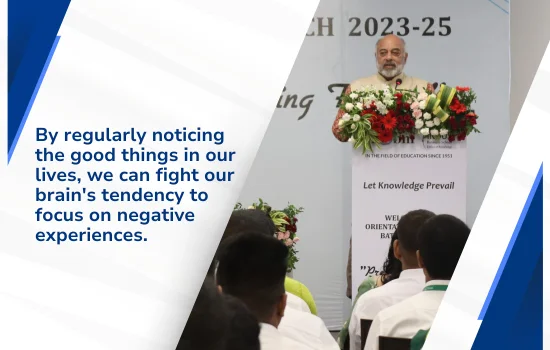
In our search for a good life, almost everyone wants to be happy. Yet happiness can be hard to find—it's a tricky mental state that has interested researchers, thinkers, and regular folks throughout time.
What Is Happiness, Really?
Happiness isn't just feeling good or not feeling bad. Research shows that true well-being includes several parts: positive feelings, being engaged in life, having good relationships, finding meaning, and achieving goals—what psychologist Martin Seligman calls the PERMA model. This helps explain why short-term pleasures often don't make us happy for long.
How Does The Brain Adapt To Situations
Our minds adjust quickly to new situations, which affects how we experience happiness. The concept called "hedonic adaptation" means we tend to return to our usual happiness level after big positive or negative events. You might feel incredibly happy after buying something expensive or getting a job promotion, but that joy typically fades as you get used to your new situation.
A Real-Life Example of Brain Adaptation
Take Neha, who worked hard for years to get promoted. When she finally got the job she wanted, she felt a rush of happiness and pride. But within a few months, the excitement wore off as her new position became routine. The achievement that once made her so happy had become just normal life. Neha's story shows how outside accomplishments often give only temporary happiness boosts.
Building Lasting Well-being
The Power of Connections
What creates long-term well-being? Research consistently points to certain key factors. Strong relationships with others stand out as perhaps the most important predictor of happiness. Harvard's longest study on adult development shows that close relationships protect people from life's troubles and slow mental and physical decline.
Gratitude Matters
Being thankful for what we have is another powerful tool. By regularly noticing the good things in our lives—even small ones—we can fight our brain's tendency to focus on negative experiences. This simple practice has been shown to increase happiness, reduce depression, and even improve physical health.
Finding Flow
Getting completely absorbed in activities you enjoy—called "flow"—adds significantly to well-being. Whether through work, hobbies, or creative activities, these states use our strengths and create a sense of timelessness that enriches our lives.
Purpose and Meaning
Having a sense of purpose plays a crucial role in lasting happiness. People who connect their actions to something bigger than themselves—through work, parenting, volunteering, or spiritual practice—typically report being more satisfied and better able to handle hard times.
Taking Control of Your Happiness
Perhaps most importantly, research suggests we can change our happiness levels. While genes account for about 50% of our happiness baseline and life circumstances about 10%, roughly 40% remains within our control through our activities and mental habits. This understanding has changed how we think about well-being, shifting focus from outside circumstances to inner practices and choices.
As we learn more about the psychology of happiness, one truth becomes clearer: well-being isn't something that just happens to us. It's something we can actively build through meaningful relationships, purposeful activities, mindful practices, and choosing to notice the good in our lives. By doing this, we don't just feel happier—we create lives with deeper meaning and fulfillment.
About Cdr. Girish Konkar (Retd.)
Cdr. Girish Konkar (Retd.) is a seasoned leadership coach, keynote speaker, and corporate mentor with over two decades of experience in leadership development. A former officer in the Indian Navy, he brings a unique blend of military precision, strategic thinking, and real-world leadership insights to his coaching. Through his expertise, he helps individuals and organizations cultivate resilience, adaptability, and high-performance mindsets. Cdr. Konkar is passionate about transforming leaders by integrating discipline, emotional intelligence, and values-driven leadership into modern business environments.





